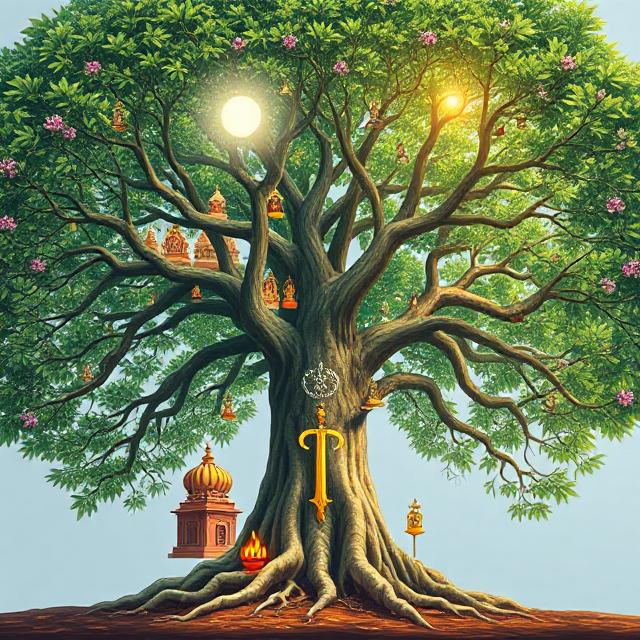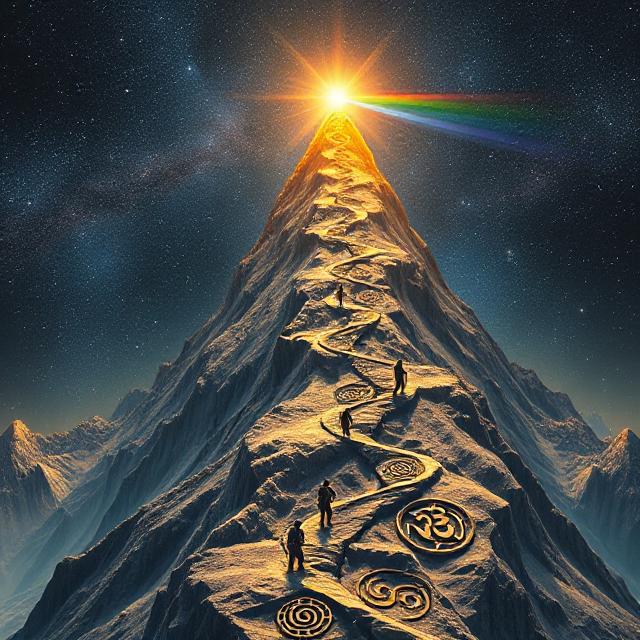Category: Branches of Philosophy
-
Pagan Revivalism and Ancient Nature Religions

Pagan Revivalism and Ancient Nature Religions Pagan revivalism is more than nostalgia—it is a cultural and spiritual movement reconnecting with humanity’s ancient past, where religion was inseparable from nature, cycles, and myth. As modern society grows increasingly digital, urbanized, and abstracted from the land, many are returning to earth-based spiritual traditions to seek deeper meaning,…
-
Secular Humanism vs Organized Religion: A Clash of Worldviews

Secular Humanism vs Organized Religion: A Clash of Worldviews Secular humanism vs organized religion—this debate reflects a profound divergence in how humans search for meaning, morality, and connection to the greater whole. While religion has shaped civilizations for millennia through sacred texts, rituals, and divine authority, secular humanism offers a non-theistic philosophy centered on reason,…
-
Islam vs Judaism: Divine Law and Prophecy

Islam vs Judaism: Divine Law and Prophecy in Two Ancient Faiths The two great monotheistic religions of the Middle East, Islam and Judaism, are both rooted in the tradition of divine law and prophecy. Each claims a special relationship with God, a covenantal framework, and a history of revelation through chosen messengers. And yet, while…
-
Sikhism vs Hinduism: Shared Roots, Distinct Ideas

Sikhism vs Hinduism: Shared Roots, Distinct Ideas Sikhism vs Hinduism—it’s a comparison that often invites confusion due to the deep cultural overlap between these two religions. Both arose in the Indian subcontinent, share a similar cultural milieu, and exhibit common customs in daily life. Yet, they represent profoundly different worldviews. While Hinduism is one of…
-
Confucianism vs Christianity: Virtue vs Grace

Confucianism vs Christianity: Virtue vs Grace at the Heart of Moral Life Confucianism vs Christianity reveals two radically different approaches to ethics, salvation, and spiritual cultivation. One roots its worldview in a cosmic and societal harmony maintained through virtuous behavior; the other emphasizes the brokenness of human nature and the need for divine grace. While…
-
Religious Fasting: Purpose Across Traditions

Religious Fasting: Purpose Across Traditions and Faiths Religious fasting is one of the most enduring spiritual practices found across the world’s major religions. Whether practiced by Muslims during Ramadan, Christians during Lent, Jews on Yom Kippur, or Hindus on Ekadashi, fasting is more than a ritual of abstinence. It is a deliberate act of spiritual…
-
What Is Salvation Across Religions?

Salvation Across Religions: Different Roads, Shared Longing What does it mean to be saved? To be liberated, redeemed, enlightened—or freed from suffering? In every corner of human civilization, religions have offered answers to the great existential dilemma: how do we overcome our limitations and reach ultimate fulfillment? This quest for transcendence—often framed as “salvation”—is a…
-
Resurrection vs Reincarnation: Life After Death

Resurrection vs Reincarnation: Two Visions of What Comes After From ancient temples to modern cathedrals, the question echoes: what happens after we die? For millennia, the world’s religions have offered answers, often falling into two major frameworks: resurrection and reincarnation. Though they both promise continuation of existence, their visions of the afterlife couldn’t be more…
-
Buddhist Emptiness vs Christian Logos: Two Paths to Ultimate Reality

Buddhist Emptiness vs Christian Logos: Two Visions of the Absolute In the quest to understand ultimate reality, two of the most profound concepts in spiritual philosophy are Buddhist emptiness (Shunyata) and the Christian Logos. At first glance, these ideas appear diametrically opposed: one proclaims the absence of inherent existence, the other celebrates the Word that…
-
Abrahamic Prophets Compared: Moses, Jesus, Muhammad

Abrahamic Prophets Compared: Moses, Jesus, Muhammad When we speak of the major religious figures who have defined the moral, theological, and cultural compass of billions, three names stand tall: Moses, Jesus, and Muhammad. They are the central figures in Judaism, Christianity, and Islam, respectively. Though each is revered differently, they form a chain of prophetic…
